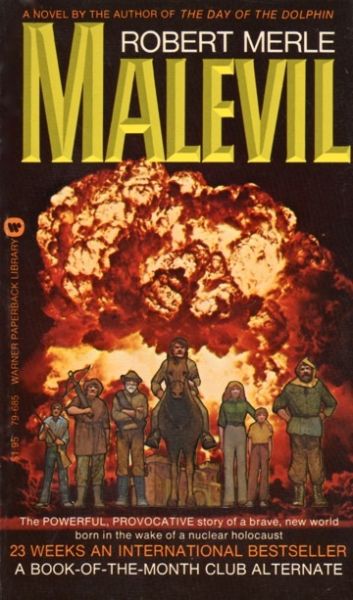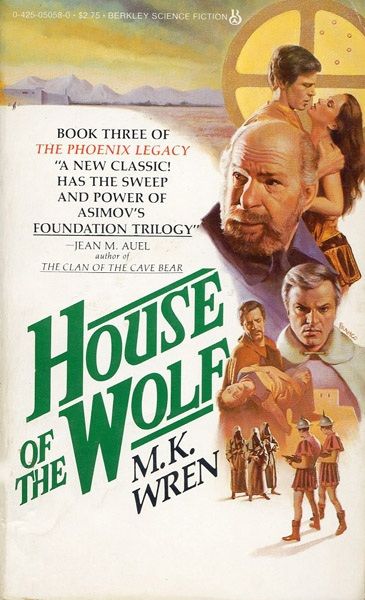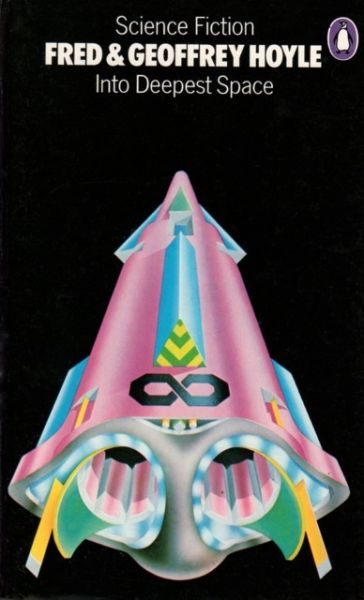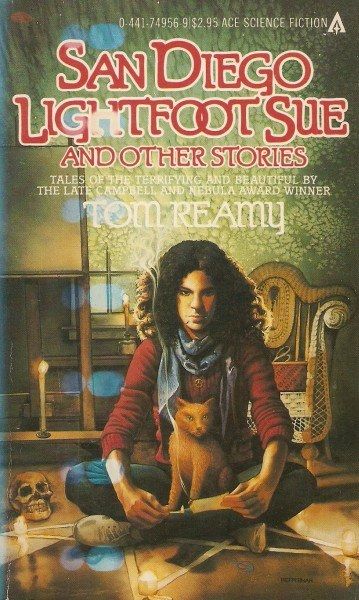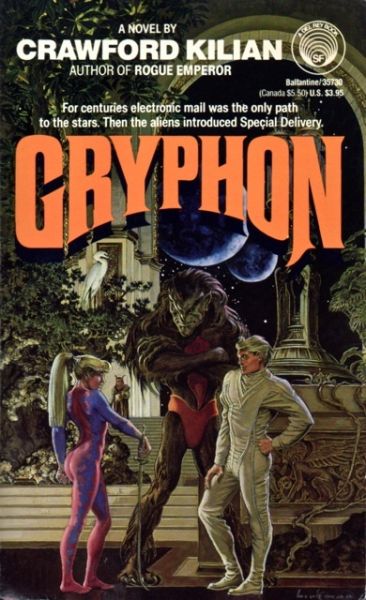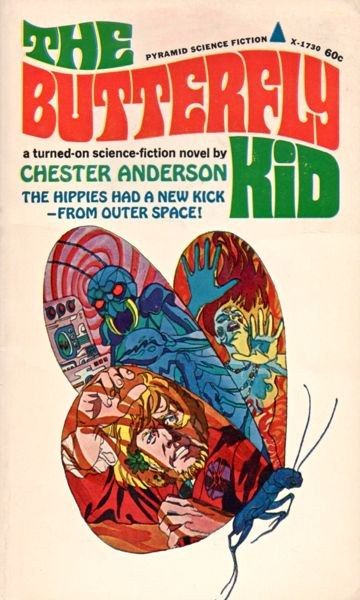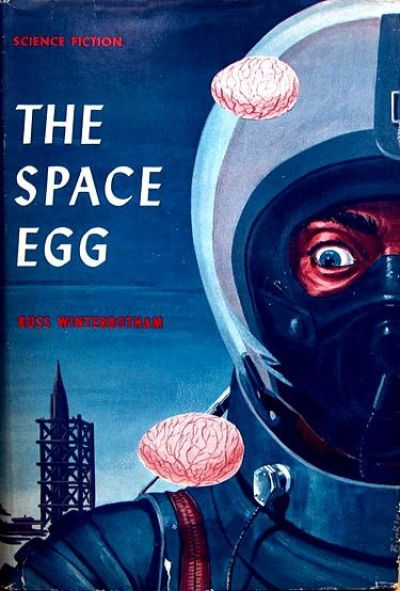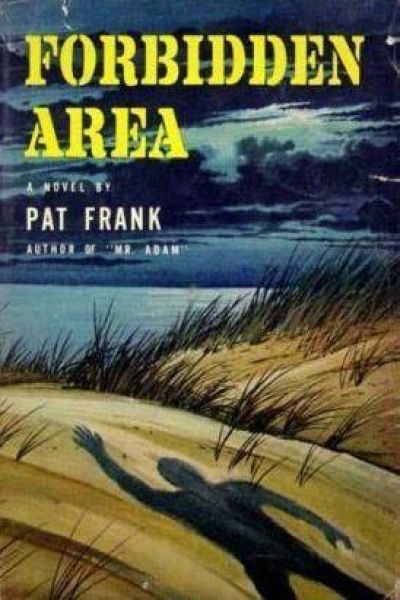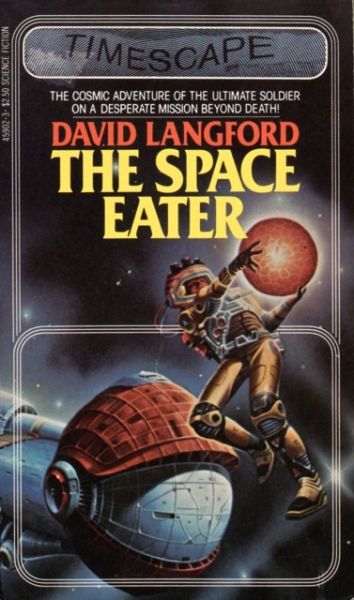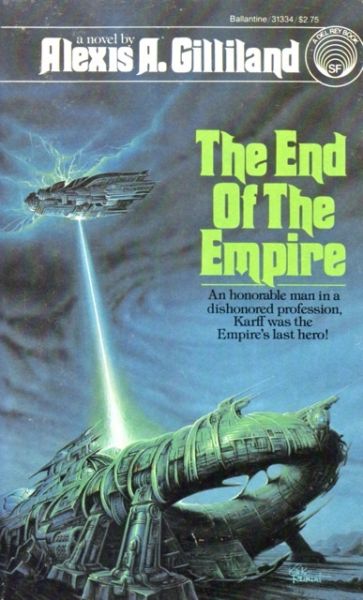The Space Eater
David Langford
Pocket Science Fiction [1983]
224 pages
Synopsis: About the turn of our century, one hundred years before TSE is set, the USA discovered a new set of phenomena they labelled anomalous physics, or AP for short. AP lets the user fiddle the basic laws of physics, with numerous benefits. Theywere looking for matter transmitters, which they got, managing to open a large gateway to a habitable planet, Pallas, around Beta Corvi, which they swiftly and secretly colonised as a hidey-hole in case the Cold War went hot. They did notice some negative benefits: roughly 6% of the stars in the universe exploded, some stars not being tolerant of the laws of physics being tweaked. More immediately, they discovereda way to set off a teraton total conversion explosion. The particularexplosion they set off was on the east coast of the USA. Due to some minor misunderstanding as to the cause, the USA retaliated against the USSR. Five days after the start of WWIII, both the USA and the USSR [and one presumes China] were smoking, isolationist shambles and the EEC, which stayed out of the spasm war, began a long slide into civil disorder and authoritarian rule.
Fast forward 100 years. The EEC/UN has noticed that the colony world survived. Worse, they’ve started playing with AP again. This is entirely unacceptable to the Europeans and the Earth in general, since the side-effects could well include our sun blowing up. Their hands are somewhat tied by the fact that they themselves can not use the big gate to open contact with Pallas, for fear of the side effects. They have a smaller version, 1.9 cm across, through which they shove machinery and supplies to build a small space station in the L2 point of the Pallas-moon system. All that remains is to find volunteers who will allow themselves to be sliced up to fit through a 1.9 cm hole and regenerated on the far side. Enter Forceman Ken Jacklin, who benefited many times from the Force’s biotechnology, having been killed and resurrected forty-odd times. He is joined by a special communications officer, Rossa Corman. Corman’s psi-talent is the telepathic transmission of pain to people who have been sensitised to her. Jacklin gets his sensitization shot and they are sent off to Pallas through the hole. The transit is entirely successful, marred only by a deep-seated pain Jacklin suffers after his regeneration and by the fact that to avoid mucking up the resurrection at the far end, no painkillers were used during the vivisection.
Jacklin and Corman contact the colonists, who are in the midst of a civil war between the Archipelago and New Africa, which is rich in oil. Because of the civil war, neither side is willing to give up AP research. Both Jacklin and Corman are aware it is within the Earth’s ability to destroy Pallas and they suspect that certain glaring holes in their briefing may be there to cover the final solution to the problem of Pallas. To prevent this from being necessary, they suggest to the Archipelago that they leak the designs for the nullbomb, and mislabel it as something else. The New Africans fall for the trick and their orbital research centre suddenly becomes ground zero for a million-megaton explosion. The NA government then surrenders to the Archipelago.
The crisis rekindles when it turns out copies of the nullbomb were dispersed. Extremist factions of New Africa believe that being tricked into blowing themselves up violated the anti-nuclear protocols, and they are refusing to surrender. Indeed, they are threatening to nullbomb the Archipelago back. General Lowenstein of the Archipelago has some thoughts on the matter: a great believer in compelled cooperation, he has the Terrans tortured until Jacklin spills everything he knows. What Lowenstein wants is the minigate the Terrans came through to use a weapon to burn New Africa clean of life. To make absolutely sure he can control Jacklin, he proposes to wire Jacklin’s pleasure center. Jacklin, a highly conditioned killer, then kills the general.
After a brief hearing, in which Jacklin is cleared, yet another problem rears its head: the Earth, tired of having their warnings ignored, drops a small black hole in Pallas. The danger is short-term but not immediate: the people on Pallas have about 500 hours before the several million tonne object hits for the first time, beginning the process of sucking Pallas through a very small hole. Jacklin and Corman come up with a solution: Jacklin is sent up into orbit with the minigate he and Corman were squeezed through. With skill, timing and a lot of concrete for shielding [the hole is radiating brightly in gamma rays], the black hole is gated elsewhere. The Pallasians finally take Earth’s point and cease their research [At least for now]. Corman and Jacklin, who have become lovers, settle down to live on Pallas.
Through out the entire book Jacklin and Corman, who have been badly damaged in their individual ways by the training needed for the Force and the special communications branch, recover.
Not a bad book. Moves along nicely and the many sides are neither mustache twirling villains nor angels. The New Africans get somewhat shortchanged in the character development department, not actually ever being onstage, but Langford has someone suggest that both sides in the civil war had valid reasons for acting as they did. Even Lowenstein and the authorities back home are not entirely bad: the Terrans could well have dropped the black hole too close for countermeasures to be possible.
Actually, on that last: as long as the black hole’s apoapsis was well away from the planet, I think the folks on Pallas had more time than they thought: they do realise the cross section of thehole is tiny when thinking about knocking it aside with energy weapons but don’t afaik consider it when thinking about it eating Pallas. I think what would happen is the intense heat from the extremely hot black hole would tend to blow matter away from the hole. They’d have many passes to work in.
Of course, having something radiating fiercely in gamma rays bobbing through the planet could well reduce property values, even if it couldn’t munch the planet down for a very long time [Note the lack of units in that last].
I really liked and still like The Space Eater. Langford’s SF output has been low, about 5 books I know of, the last in 1988. He is more prolific in sf-related non-fiction and can be seen [among other venues] over on rec.arts.sf.fandom, posting ansible, his fanzine, from time to time. Recommended.
Read more ➤
